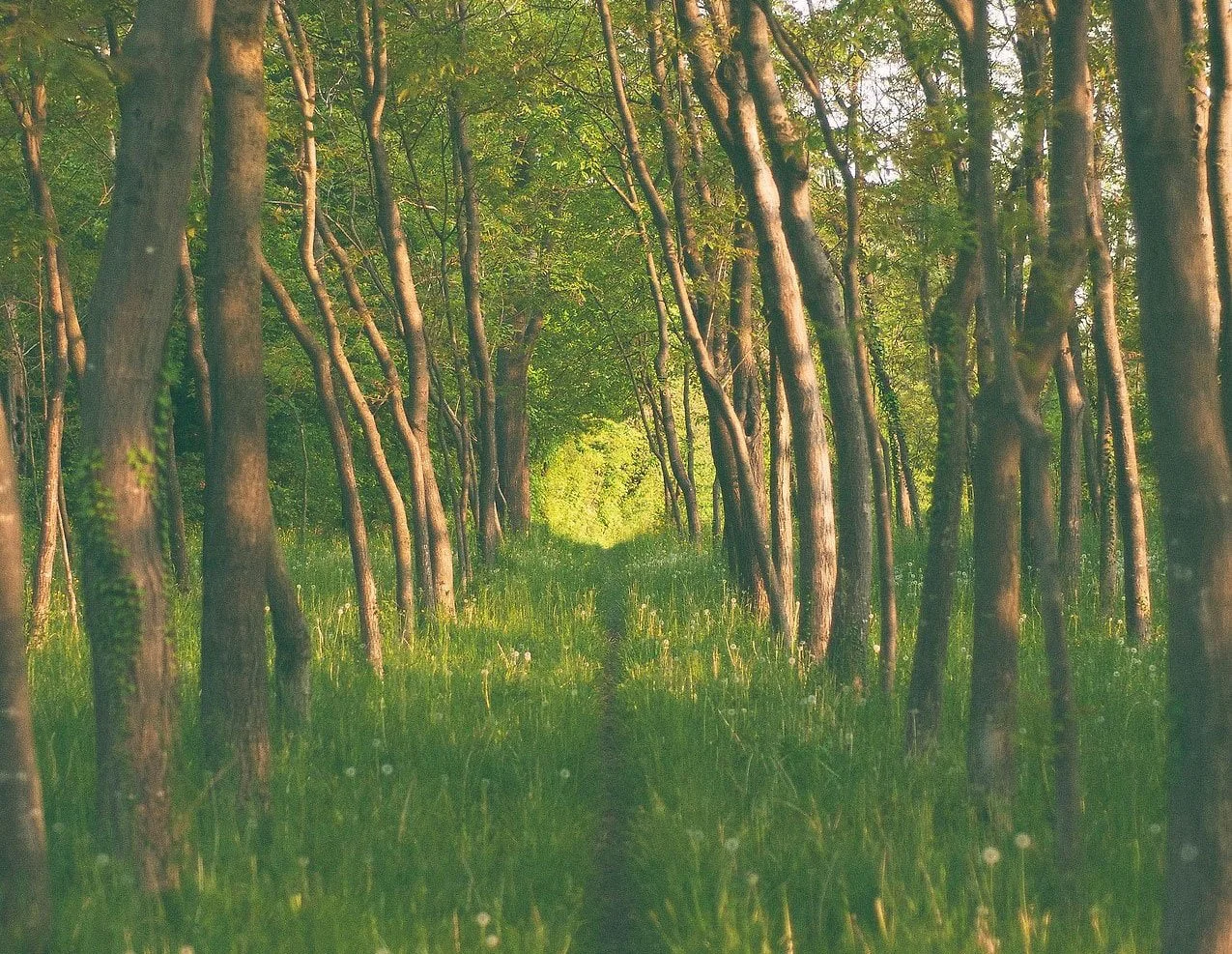Ross and Ayana consider what it means to get people interested in protecting the places that sustain us. How can we inspire the connection with the land that brings people to defend it?
Read More“An account of life that doesn't include fungi is an account of life that doesn’t exist.” Our relationship with fungi is non-negotiable. Merlin invites listeners to pay attention to what this relationship means and how it shapes not only our lives, but the entanglement of life across the world.
Read MoreDetailing her ongoing connection to the earth and the wonder she feels about humanity's place within and as a part of nature, Jacqueline details the way our rhythms are drawn from those of the earth.
Read MoreJason offers his deep wisdom about the ecological, spiritual, and cultural importance of buffalo, detailing the health benefits of eating buffalo, the ecological benefits of their migration and grazing, and the healing benefits of connection to these animals.
Read MoreDiana of Rewilding Argentina’s Patagonia Azul project brings expert insight as she talks listeners through the complexity of international biodiversity goals and declarations emphasizing the importance of creating truly protected local areas rather than just relying on regulations and declarations.
Read MoreRosemary and Ayana contemplate the ways plants shape us and make us into companions when we work with them, and consider the ways paying deep attention to the world invites us to a place of radical grief and love. How do we acknowledge change, and choose to love in spite of harsh circumstances?
Read MoreMaya introduces listeners to the science behind forest fires and urges us to see fire as not simply “destructive,” but rather as one of the many cycles of earth. From practices of cultural burning to current studies on post fire diversity, the creative and regenerative power of the forest cannot be overlooked.
Read MoreAng reveals the complex relations within the hive and the multitude of lessons if we listen rather than impose. Rooting into the rich history of beekeeping and the folk traditions of their ancestors, Ang reminds us of the deeply interconnected world humans and bees share and the reciprocity inherent in right relationship.
Read MoreDr. Carroll pushes back against dominant settler histories about Cherokee migrations and relations to homeland and provides insight into what audience members ought to glean from Indigenous philosophies imparting practices of deep reciprocity, responsibility, and relationship to the land and each other.
Read MoreWe slow down to acknowledge the beauty and power of fungal decomposition with guest Giuliana Furci who shares a lesson in divine time, the transformation of energy, and the necessity of decomposition.
Corrina reminds us that Ohlone territory still holds tremendous abundance and that the land can sustain us in a way that would provide for our wellbeing should we choose to really re-examine what it is we need to survive.
Read MoreAyana and Mike touch on the history of cattle ranching and grazing rights, trophic cascades and the vitality of death, the violent lineages of conservation, and ecological restoration as an antidote to species loss.
Read MoreDr. Patricia Kaishian encourages us to think of mycology as a revolutionary and political practice. Diving into queer mycology, we see the ways that fungi challenge binaries of gender, family structure, and even traditional biological classification.
Read MoreKerry spans the dreamiest of worlds, from the surreal and psychedelic presence of lichens to the magic of creating life post-capitalism and speaks to the times we are living in, “just like the butterfly that beats its wings and causes a rainstorm around the other side of the world, we have to embrace the chaos of our lives.”
Read MoreChris Zimmer invites us to imagine what clean, healthy rivers can bring us, and to propel love for these rivers towards ethical action. Calling into question international agreements, futures of mining, and responses to climate change, this enduring conversation unsettles and uproots our conceptions of borders.
Read MoreSamuel, a Yurok fisherman and activist, guides us to explore the length of Klamath River restoration and the work that follows in the aftermath, both in terms of ecological restoration and the remediation of ancestral territories.
Read MoreStefanie shares how sharks regulate the ocean’s ecosystem, the ramification of dwindling shark populations, and the many reasons that the market for shark, ray, and skate meat has more than doubled since the early 1990s.
Read MoreAn on the ground interview between Maia Wikler and xʷ is xʷ čaa that goes beyond old-growth logging and big tree activism to explore Indigenous sovereignty, the responsibility of bearing witness, the importance of distinguishing between short term actions and more…
We slow down to acknowledge the beauty and power of fungal decomposition with guest Giuliana Furci who shares a lesson in divine time, the transformation of energy, and the necessity of decomposition.



![CORRINA GOULD on Settler Responsibility and Reciprocity [ENCORE] /355](https://images.squarespace-cdn.com/content/v1/5403e5dbe4b04db10d1d362b/1699464255679-MHWAKOUODL46ZO5OF6RV/Corrina-Gould_ForTheWild-Episode.png)







![GIULIANA FURCI on the Divine Time of Fungal Evolution [ENCORE] /289](https://images.squarespace-cdn.com/content/v1/5403e5dbe4b04db10d1d362b/1624395828059-EEJVEGSST8SNRA09QSPP/Giuliana-Furci_For-The-Wild_Episode4.jpg)
![CORRINA GOULD on Settler Responsibility and Reciprocity [ENCORE] /277](https://images.squarespace-cdn.com/content/v1/5403e5dbe4b04db10d1d362b/1647449812310-T5MVLHRMBON1JHIEMB0Z/Corrina-Gould_For-The-Wild_Post2-1.jpg)
![MIKE PHILLIPS on Gray Wolves and the Vitality of Death [ENCORE] /275](https://images.squarespace-cdn.com/content/v1/5403e5dbe4b04db10d1d362b/1645462431495-HZ0499OGV6YLZ96PDF0S/Mike-Phillips_For-The-Wild_Episode.jpg)

![KERRY KNUDSEN on Lichen and Life after Capitalism [ENCORE] /258](https://images.squarespace-cdn.com/content/v1/5403e5dbe4b04db10d1d362b/1635191062031-TQ4YE597GHWK8TYX3MTC/Kerry-Knudsen_For-The-Wild_Episode.jpg)



